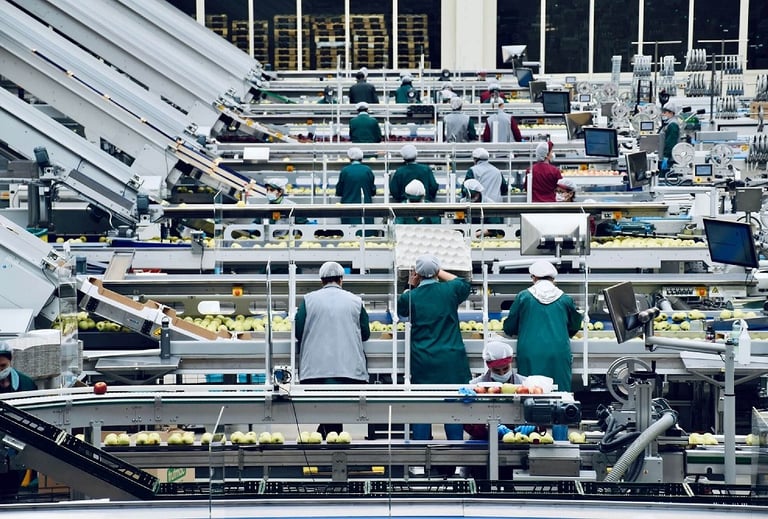Industrial food: why worry?


Of course, you already know the answer: “because industrial food is too fatty, too sweet and too salty". That's true, but it's not the only reason
Too sweet? Yes, most processed foods contain too much sugar, especially fast sugars, even those that don't taste sweet and in which you wouldn't expect to find added sugar. On the Nutrition Facts Label, you'll find the total energy content, broken down into carbohydrates, lipids and proteins. For carbohydrates, the family of sugars, not only is the total content indicated, but also the added sugars, which are always fast sugars. These are the problematic ones, because of their impact on blood sugar levels and insulin synthesis. I'll talk about them in another article.
Too salty? Yes, salt is a very effective flavor enhancer, and many processed foods contain some, even those that don't taste salty and in which you wouldn't expect to find salt, such as cookies. This is annoying, because too much salt is deleterious, and the ideal is not to exceed 5 g a day. As there is already salt in the form of sodium in natural foods, this corresponds to a maximum of 2 g of added salt per day. With an industrial diet, this limit is quickly exceeded. Too much salt can increase our blood pressure, which presents a cardiovascular risk, contributes to acidification of the body, and can damage the stomach, even leading to stomach cancer. Salt also contributes to weight gain by increasing glucose absorption. Last but not least, salt sets up a vicious circle, as it atrophies our taste buds, and we gradually have to eat more of it to keep tasting it. Good to know, salt is nothing more than the combination of sodium (Na) and chlorine (Cl). In nutrition, too much sodium is the same as too much salt. If you see "sodium" on a label, use the conversion factor x2.5 (1 g sodium = 2.5 g salt) to find out the amount of salt.
Too fatty? Yes, processed foods are often too fatty, but the problem lies mainly in the fact that they don’t provide the right balance between the different types of fatty acids: saturated, monounsaturated, and polyunsaturated, and within these, a proper balance between omega 6 and omega 3. They also contain trans-fatty acids, which are really not beneficial to the body.
But that's not all. Industrial food also contains a huge number of additives. And although they are authorized, scientific data shows that many more of them present risks than are not harmless. Authorization to use them generally sets limits on the quantities to be used, and in some cases specifies food categories to be excluded. This being the case, it is impossible to keep track of the the quantities of the various additives ingested with processed foods, and maximum daily quantities can easily be exceeded. There is also a serious lack of data on the cumulative effects of additives and their interactions with each other. In view of the documented or proven risks which include, depending on the additive concerned, cancer, genetic mutations, disruption of the microbiota, allergies or being an endocrine disruptor, it’s best to avoid processed foods. It's also a good idea to get into the habit of reading and spotting harmful additives (I still need to write an article with their list and risks).
Finally, and this is the biggest problem according to me, processed foods are often "empty calories" from a nutritional point of view, i.e., they do not contain the vitamins, minerals, fiber and other nutrients our body needs. They provide carbohydrates, proteins, and lipids (and salt), but that's often where they end. No organism can function properly on these macronutrients alone.
It's impossible to go into all the details in this article, but, believe me, it's impossible to be healthy on an industrial diet, even if you try to compensate by taking food supplements. The best strategy is to exclude processed foods (and drinks) altogether, or to consume them only in exceptional cases.
To find out more, also read these articles:
On the mechanisms involved in weight gain: https://isabellemaesnutrition.com/en/weightgain
On how to broaden the range of foods that have a place in a healthy diet: https://isabellemaesnutrition.com/en/forgotten-foods
On understanding processed foods labels: https://isabellemaesnutrition.com/en/labels
Food processing plant picture by Arno Senoner
